| March 2022 Newsletter |
View in browser | Print |
 | 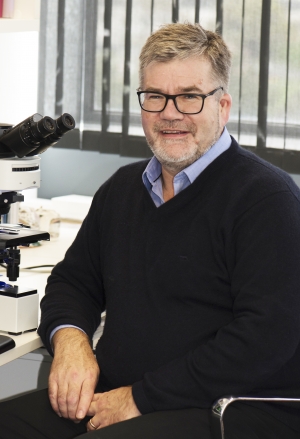
Welcome to our March newsletter
I hope that you enjoy the March 2022 edition of our newsletter. If you wish to know more about the achievements of the Centre through 2021, I would encourage you to have a look at our 2021 Annual Report. Despite a difficult year with the continued impacts of the COVID-19 pandemic, there have been a host of Centre achievements across education and research. We are particularly proud of the Centre team that came up with the idea for the fund-raising event, RUN for the ISLAND, which raised much-needed funds and also increased awareness of dementia across Tasmania. I would also like to thank all of those that donated to this event, helping us to realise the benefits that are coming from the ISLAND Project. It is our hope that we may be able to extend this innovative public health program for dementia risk to the rest of Australia in the coming years.
|  | | OUR HIGHLIGHTS | 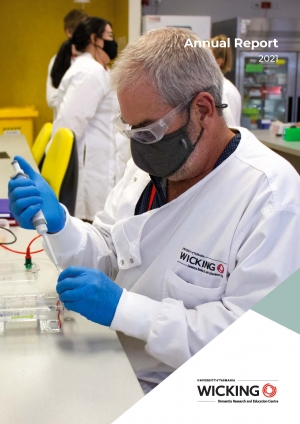
2021 Annual Report
Our 2021 Annual Report is now available on our website. Read about our research and educational activities and the many successes that are highlighted in the report from the past year. It has been a particularly difficult year for all concerned, with the challenges of COVID-19, and we thank all our staff and students for their support and understanding. READ MORE
| | RUN for the ISLAND | 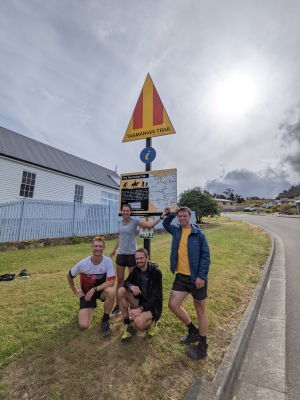
What a fantastic team effort!
The RUN for the ISLAND team completed the Tasmanian Trail - from Devonport in the state’s North, to Tasmania’s southernmost settlement of Dover - in only five days. On the way, they stopped off at regional centres to recruit participants into the dementia risk reduction project and encouraged community engagement in healthy lifestyle activities. RUN for the ISLAND is an initiative developed in 2021 to promote physical activity in the community, raise awareness for dementia risk reduction, recruit research participants and raise awareness for the ISLAND Project. Funds raised will be used to support the ISLAND Project through 2022. READ MORE
| | OUR EDUCATION |
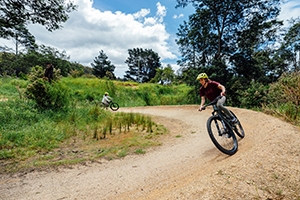 | 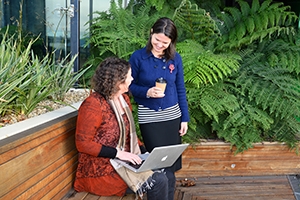 |
Understanding Traumatic Brain Injury MOOC | Modifying your risk of dementia |
Following the very successful launch of the Understanding Traumatic Brain Injury MOOC in 2021 we are now offering the course twice a year, in March and August. The next course starts on Monday 28 March, and you can enrol today. Understanding Traumatic Brain Injury has been developed with support from Connectivity and aims to raise awareness and build knowledge to reduce risk, as well as improve management and rehabilitation outcomes for people who have experienced a traumatic brain injury. It is designed to be accessible and is suitable for anyone with a personal or professional interest in learning more about traumatic brain injury. ENROL TODAY | Is it possible to modify your risk of dementia? A substantial proportion of risk is associated with advanced ageing as well as genetic risk factors, but the latest research has indicated there are factors you can modify which may decrease your susceptibility to dementia. The Preventing Dementia MOOC investigates the best available evidence about dementia prevention, drawing on a range of expertise from around the globe. Our latest Preventing Dementia MOOC opens in May and you can enrol today. ENROL TODAY |
|
| OUR RESEARCH |
 | 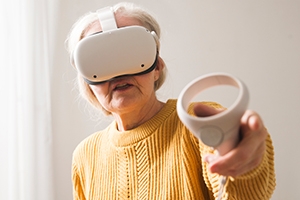 |
Wicking Dementia Centre Seminar Series | Virtual reality helping dementia research |
Our latest online seminar will focus on traumatic brain injury (TBI). It is often thought that young males undertaking risky behaviours are the ones who will sustain a traumatic brain injury. However, did you know that falls are a leading cause of all traumatic brain injuries? In fact, there are three age peaks in traumatic brain injury. Children under the age of four, adolescents and young adults, and the third peak is in individuals aged over 65. Register below for this free online seminar on Wednesday 23 March. REGISTER TODAY | Researchers at the Wicking Dementia Centre and School of Information and Communication Technology (ICT) are developing a virtual reality navigation task in the hopes of using it to identify individuals at risk of Alzheimer’s disease years before the onset of clinical symptoms. The project, led by Dr Maneesh Kuruvilla (Wicking Dementia Centre) and Dr Winyu Chinthammit (ICT), aims to investigate aspects of the brain’s internal GPS, which might be susceptible to the early stages of Alzheimer’s disease pathology.
READ MORE |
|
| OUR STUDENTS |
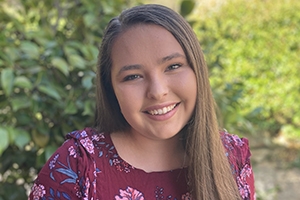 | 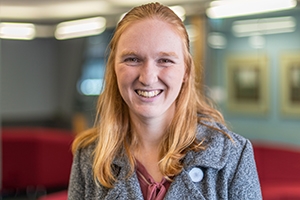 |
Students experience research first-hand | Student Awards |
The Wicking Dementia Centre offers a number of summer internships to undergraduate students studying at the University of Tasmania. Hear from Emily, one of our students, about her recent work with our traumatic brain injury team as she learned first-hand about the role research plays in understanding diseases. It’s great to be able to offer this exposure to ongoing research and inspire our next generation of researchers.
READ MORE | Our most recent award, the Emeritus Professor Lloyd and Ann Smythe Prize in Dementia Studies, has been awarded to Hannah Fair. Hannah is passionate about ensuring all people, from all backgrounds, know what they can do the reduce their dementia risk. Her PhD is looking at the spread of dementia risk information through social networks and how this can be increased. Follow the link below to read more about our research. OUR RESEARCH |
|
|
Stay connected:
|




|
utas.edu.au/wicking
|
| |
|
|